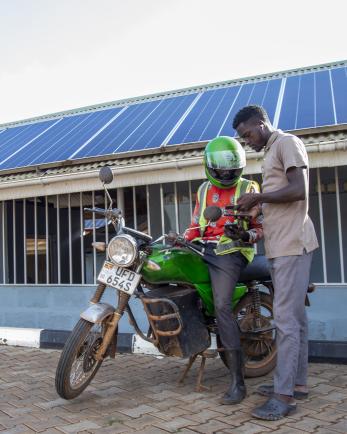Sustainable cities
By 2050, Africa's urban population is expected to double to an estimated 1.5 billion people. Rapid urbanization already poses enormous social, environmental and economic challenges for national and local governments, as well as for the population. The lack of access to basic services, social inequality, rising poverty and increasing pressure on natural resources and the environment are some of the most pressing challenges.
Access to clean energy can play a crucial role in addressing rapid urban growth in Africa. Dependable and cost-effective access to clean energy serves as the bedrock for facilitating essential services and infrastructure within cities and informal settlements. This encompasses vital aspects such as transportation, lighting, heating and cooking, which support communities to transition away from dangerous, unhealthy and costly fuel sources.
Clean energy enhances the quality of life for residents and supports economic activities, including small businesses and productive enterprises, creating jobs and contributing to economic growth. Working with public and private sector actors and in collaboration with communities, we strive to find sustainable solutions to these challenges.
